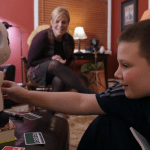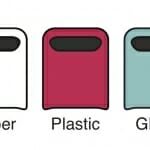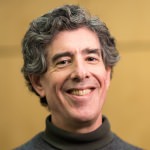Tag Psychology
New Faculty Focus: Alvin Thomas
Thomas's work aims to improve the life chances of Black children and youth by drawing attention to risks that undermine their positive development, strengthening the Black family, encouraging father engagement, and challenging policies that undermine these families. Read More
Black youths less protected from antisocial behaviors than white peers
New research assesses the developmental trajectories of antisocial behaviors in both black and white youths. Read More
For student commencement speaker, years of writing and performing lead to Kohl Center stage
Jamie Dawson, a seasoned spoken word artist and member of the First Wave program, has been chosen as the student speaker for winter commencement. Read More
New Faculty Focus: Simon Goldberg
"My work focuses broadly on finding ways to promote wellbeing and reduce suffering, which certainly relates to the health and wellbeing of residents of Wisconsin." Read More
A video game can change the brain, may improve empathy in middle schoolers
In the experimental game, a robot crash lands on an alien planet. In order to rebuild the spaceship, players must, as the robot, build rapport with the aliens by deciphering their emotions. Read More
Away with words: Emoji help brands communicate with customers
A UW–Madison professor's research examines how emoji are used to convey meaning and emotion in written communications, especially on social media. Her favorite? The eye roll. Read More
Meditation can help during crisis and everyday lives, UW–Madison expert says
Meditation was used to calm the 12 boys trapped in a cave in Thailand before their rescue. A UW–Madison expert says it can help you in your daily life too. Read More
How talking more can make you better at listening — to foreign languages
The typical foreign language class spends much of its time listening to fluent speakers, but new UW research shows that the students should spend more time talking. Read More
When communicating with color, balance can be a path to accuracy
UW-Madison Researchers found that the best colors to use for waste bins are shades of white for paper, red for plastic, pale blue-green for glass, dark grey for metal, dark green for compost, and black for trash. Read More
They grin, you bear it. Research reveals physical impact of a smile.
New research shows that smiles meant to convey dominance trigger a physical spike in stress hormones in their targets, while smiles intended as a reward appear to physically buffer recipients against stress. Read More
To sleep, perchance to forget
The debate in sleep science has gone on for a generation. People and other animals sicken and die if they are deprived of sleep, but why is sleep so essential? Read More
New approaches in neuroscience show it’s not all in your head
“How we experience the world affects us in more ways than we previously thought,” says Richard Davidson, a professor of psychology and psychiatry at UW–Madison and director of the Center for Healthy Minds. Read More
Virtual reality users must learn to use what they see
The study found that when most people put on a virtual reality headset, they still treat what they see like it’s happening on any run-of-the-mill TV screen. Read More
Davidson elected to National Academy of Medicine
The director of the Center for Healthy Minds has authored more than 375 papers exploring the neural bases of emotion, and interventions that may be helpful for promoting well-being, kindness, compassion and empathy. Read More
Healthy competition makes habit of sustainability
A new analysis shows lasting reductions in electricity use among hundreds of players of the Cool Choices game, which uses friendly competition to get energy-saving habits to sink in. Read More
To pick a great gift, it’s better to give AND receive
A new study shows that gift recipients are happier with a present when the giver got themselves the same thing — a phenomenon researchers call "companionizing." Read More




















